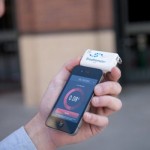 Recently I wrote about the growing predictive capabilities of our mobile phones, or more accurately the data generated by them. Mobile data was capable of predicting with decent accuracy things such as the unemployment rate in a town and the GPA of a class.
Recently I wrote about the growing predictive capabilities of our mobile phones, or more accurately the data generated by them. Mobile data was capable of predicting with decent accuracy things such as the unemployment rate in a town and the GPA of a class.
It’s perhaps a natural next step, therefore, for that analytic capability to be put to good use and try and steer us onto the right path. A number of projects are venturing into this territory.
Stopping us falling asleep at the wheel
One such project, documented in a recently published paper, attempts to use smartphone data to alert drivers when they might be getting dangerously drowsy behind the wheel.
The researchers use the accelerometer data produced by our smartphone as a proxy for drowsiness levels. They suggest that this can accurately predict when we are becoming less alert with around 80 percent accuracy.
The authors believe that the method could be a useful tool in preventing fatigue related accidents on our roads. With such incidents contributing to around 1,200 deaths in the USA alone each year, it’s a worthy cause indeed.
The researchers believe that using the accelerometers found in smartphones is a simple and cost effective way of tackling the problem, with an alarm triggered should the driver begin to motion in a way that suggests drowsiness.
“Because the number of highway fatalities due to drowsy driving continues to show consistently high annual figures year after year, the necessity for a practical and inexpensive means of drowsy driving monitoring is becoming especially apparent,” the team concludes. “This study shows that the implementation of an accelerometer-based method for drowsy driving detection will be effective and yield high accuracy classifications of a driver’s drowsy state which has the potential to save lives.”
Keeping you the right side of the line
Whilst fatigue is undoubtedly a major cause of accidents on the road, so too is alcohol, so a second smartphone based innovation may have some valuable applications.
A new app, called The Alcohol Tracker, has been developed by doctors based upon the latest clinical evidence to warn us if we’re coming up to the recommended alcohol consumption levels.
In addition to alerting you when you’re nearing the limit, it also has a range of built-in psychological therapies to help users manage their alcohol consumption better.
The developers believe the app trumps what is already on the market because of this clinical basis. Users can log the amount of alcohol they’ve consumed in a given period, and the app then converts those into units and informs the user of the safety of their drinking.
A smartphone pregnancy test
Of course, apps such as that still require (honest) data input from the user. Slightly harder to trick may be a new innovation that promises to bring accurate pregnancy testing to our smartphones.
A German based team from the University of Hanover have developed a self-contained fiber optic sensor for smartphones that is capable of conducting a range of biomolecular tests, such as detecting pregnancy or monitoring for diabetes.
The readings from the sensor interact with a smartphone app to provide the user with real time results. The researchers believe the device can be used successfully with multiple body fluids, including urine, blood, saliva, sweat or breath.
The device, which was described in the journal Optics Express, uses surface plasmon resonance (SPR) to detect the explicit composition of a liquid.
“We have the potential to develop small and robust lab-on-a-chip devices for smartphones. So, surface plasmon resonance sensors could become ubiquitous now,” the researchers say.
Surface plasmon resonance usually requires bulky lab equipment, but with the average smartphone coming complete with both a light detector and a light source, they can often replicate the work just as effectively.
The researchers put the smartphone device through its paces and found the results were comparable to more traditional equipment, albeit at a fraction of the size and cost.
So three very different ways in which smartphones are beginning not just to track our behaviours but guide and cajole them.
Re the alcohol one, that's fine so long as people input an accurate reflection of their drinking. Doing that suggests they have a desire to stay relatively healthy. If they're not bothered then this app isn't really much use.
Indeed, with any self-reporting, it's value rests in the accuracy of the input.
I spilt tea on my smartphone the other day and it said I was pregnant 🙁
Fascinating stuff, thanks for sharing.